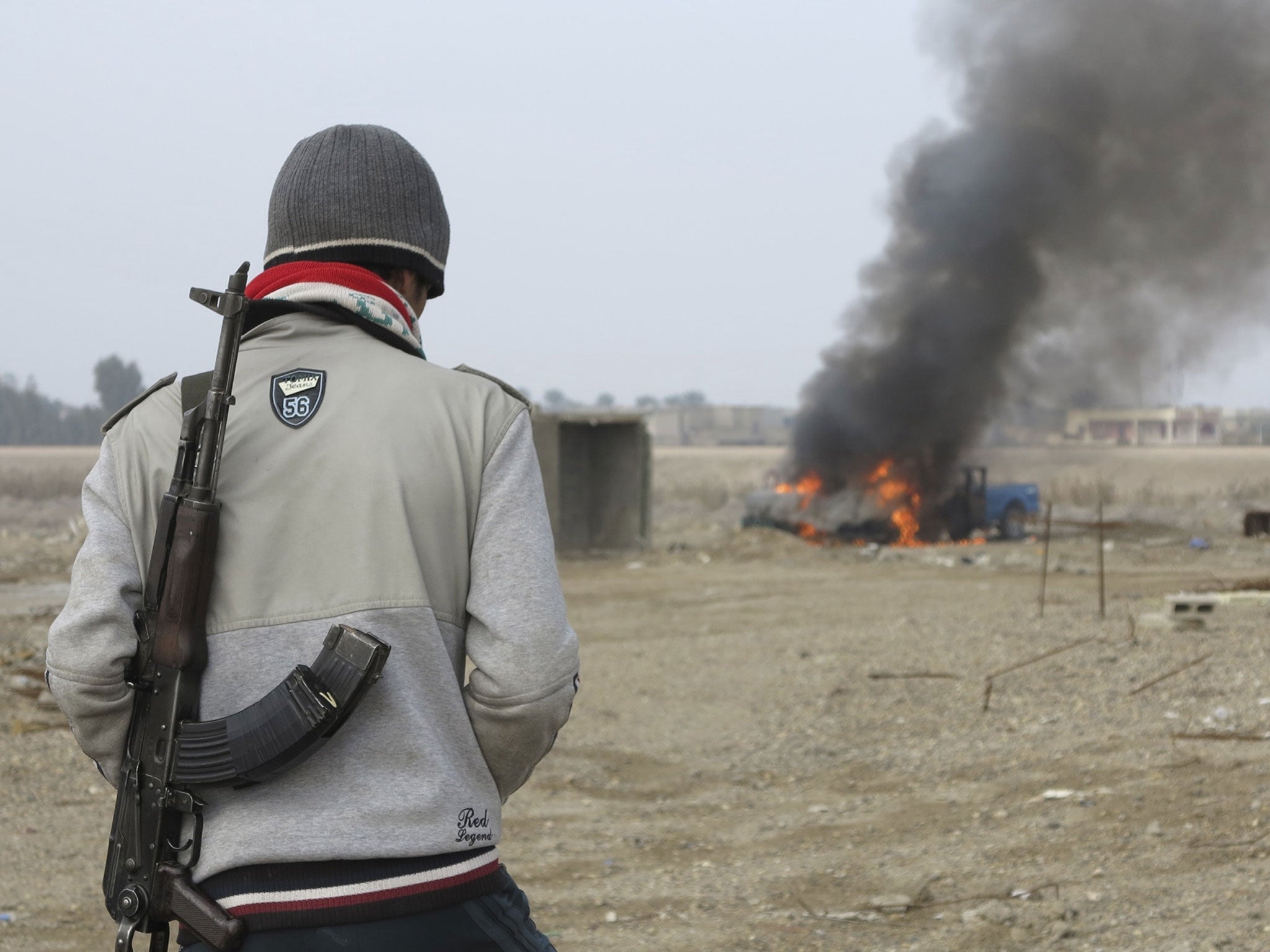Iraqis battle al-Qa'ida militant uprising in Ramadi and Fallujah

Your support helps us to tell the story
From reproductive rights to climate change to Big Tech, The Independent is on the ground when the story is developing. Whether it's investigating the financials of Elon Musk's pro-Trump PAC or producing our latest documentary, 'The A Word', which shines a light on the American women fighting for reproductive rights, we know how important it is to parse out the facts from the messaging.
At such a critical moment in US history, we need reporters on the ground. Your donation allows us to keep sending journalists to speak to both sides of the story.
The Independent is trusted by Americans across the entire political spectrum. And unlike many other quality news outlets, we choose not to lock Americans out of our reporting and analysis with paywalls. We believe quality journalism should be available to everyone, paid for by those who can afford it.
Your support makes all the difference.Iraqi security forces and allied tribesmen battled on Thursday to put down al-Qa'ida-linked gunmen who, in a coordinated surge, ran rampant in two of the country's main Sunni cities, overrunning police stations and sweeping through the streets, emboldened by mounting sectarian tensions between minority Sunnis and the Shiite-led government.
Troops hammered the militants with Hellfire rockets recently sent by the United States to help the government's fight against al-Qa'ida's Iraq branch, which also operates with increasing strength in Syria's civil war across the border. The militants' swift uprising a day earlier overwhelmed police forces in Ramadi and Fallujah, two cities in the Sunni heartland of Anbar province that were once strongholds for militants battling US troops.
The al-Qa'ida branch, known as the Islamic State in Iraq and the Levant, appeared to be trying to exploit Sunni anger after authorities over the past week arrested a senior Sunni politician accused of terrorism and dismantled a months-old sit-in in Ramadi by Sunnis protesting discrimination the government. Those moves added new fuel to sectarian violence that has escalated since the American withdrawal.
In new violence outside Anbar, a pickup truck laden with explosives blew up on a busy commercial street Thursday evening in the city of Balad Ruz, 45 miles northeast of Baghdad, destroying several shops. At least 19 people were killed and 37 were wounded, according to the security officials and health officials, who spoke on condition of anonymity because they were not authorized to talk to the press.
Al-Qa'ida militants have been presenting themselves as the Sunnis' champions against the government. Still, major Sunni tribes in Anbar and elsewhere oppose al-Qa'ida and are fighting against it.
The heaviest fighting on Thursday came in Fallujah, 40 miles west of Baghdad, where two security officials said their forces were meeting particularly heavy resistance from al-Qa'ida fighters. In the provincial capital of Ramadi, security forces took back several police stations, the officials said. There was no immediate word on casualties. Footage released by the military showed forces firing Hellfire missiles at militant positions.
In another apparent move to maintain Sunni support, security forces arrested a controversial Shi'ite cleric who leads an Iranian-backed militia. Sunnis have long accused the government of targeting only Sunni militant groups while blessing Shiite ones.
AP
Join our commenting forum
Join thought-provoking conversations, follow other Independent readers and see their replies
Comments